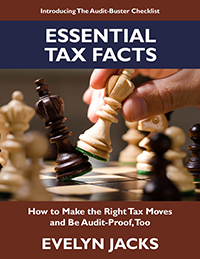Last updated: February 06 2018
Budget 2018: Its Place in Canadian Tax History

What should we anticipate in this year’s federal budget? Evelyn Jacks weighs in on the anticipated changes – and who will be affected by them - with signals already clearly evident from recently released Finance Canada documents.
Call me odd; I love everything about the annual release of the federal budget. It provides a glimpse into our near-term economic future with the summary of private-sector forecasts. It answers questions about the direction of everything from the price of oil to unemployment, and how rates of exchange, interest and tax will trend. Every year, it also provides the opportunity to hear something that’s ground-breaking about our tax system.
This year’s effort will be particularly interesting as we continue to down the road of a broad tax reform, already controversial in its rollout. Recall that last fall, the small-business community was up in arms when the Finance Minister introduced proposals for massive tax increases on passive investment income in private corporations and on income that is split in the family.
It is an arduous task finance ministers have historically had in mastering the art of plucking the tax goose with the least amount of hissing (to paraphrase Louis XIV’s finance minister Jean-Baptiste Colbert, who mused on how to do so, back in 1665).
In Canada however, there are some serious issues affecting our eroding tax base: the ratio of Canada’s working and taxpaying generations to the elderly will decrease dramatically, according to The Update of Long Term Fiscal Projections released in December 2017:
- Working age Canadians 15 to 64 to the elderly (those 65 and over) to be reduced by 50% from 5.3 to 2.4. This is one of the largest projected decreases in the OECD Countries.
- Today, with such a large cohort of older workers, overall labour force participation – that is, the number of hours worked by Canadians - is past its peak. This will have a negative impact on economic growth in the coming decades, here in Canada
- Canada’s Real GDP Growth will be reduced from an average of 4.8% in 1955 to 1975, to an average projected growth rate of 1.8% in 2017 – 2055.
- Overall long-term growth in the Real GDP is expected to average 1.7% from 2023-2055.
The report went on to note:
“. . . Changes in economic growth assumptions over the medium terms can have large impacts on the budgetary balance and debt-to-GDP profile over the extended projection horizon. . .it is therefore imperative to continue to grow the economy by investing in the middle class and in the skills and technology that make Canada more productive, competitive and fair.”
 |
What this really means, however, is that governments must grow the middle class to grow tax revenues.
How to get more people to join the ranks of middle class taxpayers? One way is to legislate minimum wage increases. Another, is to encourage women to enter the labor force and work. Several Finance Canada documents, have mentioned a new focus on gender-based analysis, in order to do so.
Notably, from December 13, 2017 Income Sprinkling Measures:
“Data show that men represent over 70% of higher-income earners initiating income sprinkling strategies and women represent about 68% of recipients of sprinkled dividends (and 58% of recipients of income derived from trusts and partnerships). While this income is of benefit for recipients, it also creates incentives that reduce female participation in the workforce. Increased participation of women in the workforce is a source of economic opportunity for individuals and is a major driver of overall economic growth. . .”
Further, in its December 22, 2017 report, Finance Canada identified women, indigenous people, older workers, newcomers and people with disabilities, as under-represented in the labor market with equal earning opportunities to men.
And so we have many clues to our next federal budget. It will be interesting to see what tax, economic and social policy shifts will be introduced to shore up the tax base and how Canadians will react to the news and its effect on their pocketbooks and their lifestyles.
Evelyn Jacks is President of Knowledge Bureau and author of the New Essential Tax Facts: How to Make the Right Tax Moves and Be Audit-Proof, Too, available in February. Pre-orders accepted now. Follow Evelyn on twitter @evelynjacks.
©2018 Knowledge Bureau Inc. All Rights Reserved.





